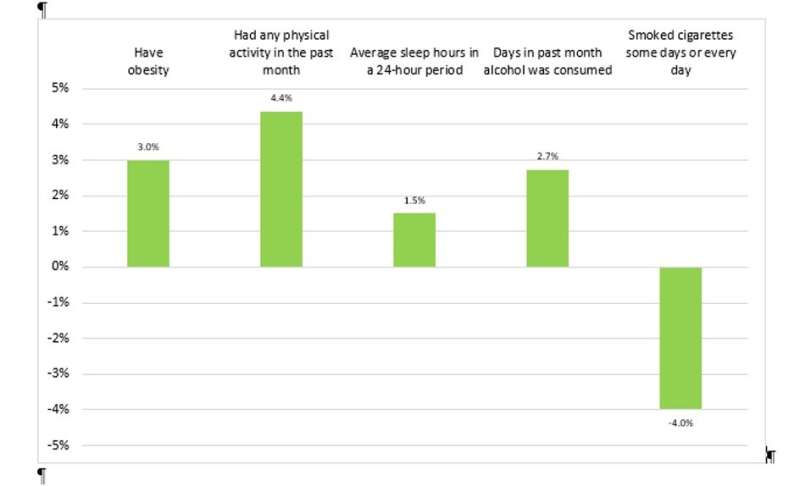New study sheds light on weight gain during the COVID-19 quarantine

More Americans weighed in as obese during the first year of the COVID-19 pandemic than in the previous year. A new study in the American Journal of Preventive Medicine, presents evidence from a large, nationally representative survey that documents this trend and helps to explain behavior changes that led to widespread weight gain in 2020.
“Previous studies present evidence that intra-pandemic changes in risky dietary and other health-related behaviors likely contributed to the rapid rise in body weight during this period. Adults who reported weight gain also reported more frequent snacking and alcohol intake; increased eating in response to sight, smell, and stress; and decreased physical activity,” explained lead investigator, Brandon J. Restrepo, Ph.D., US Department of Agriculture, Economic Research Service, Food Economics Division—Diet, Safety and Health Economics Branch, Washington, DC, U.S.
Adult obesity in the US was elevated and trending upward prior to the COVID-19 pandemic. While several studies have reported on small and relatively homogenous online surveys that track weight gain in the US adult population during the initial pandemic period, this study is the first to use data from the Behavioral Risk Factor Surveillance System (BRFSS), a larger, nationally representative survey of the US adult population. It contains data on health outcomes, health-related risk behaviors, preventive services, and chronic medical conditions.
To estimate the overall changes in adult obesity prevalence and four obesity-related risk factors during the COVID-19 pandemic, the analysis of the BRFSS data employed linear regression models that control for age, sex, race/ethnicity, education, household income, marital status, number of children, survey year indicators, and state of residence indicators.
According to the analysis of more than 3.5 million US adults (aged 20 and older) from the 2011–2020 BRFSS, obesity was 3% more prevalent during the year beginning March 2020, compared with the 2019 to pre-pandemic 2020 period. The study also found statistically significant changes among US adults in four obesity-related risk factors during the COVID-19 pandemic: exercise participation, sleep duration, alcohol consumption, and cigarette smoking.
While exercise participation and sleep duration were higher by 4.4% and 1.5%, respectively, the number of days in which alcohol was consumed was 2.7% higher and cigarette smoking prevalence was lower by 4%. The overall increases in exercise and sleep were not sufficient to offset the impact of other behaviors, resulting in an average 0.6% rise in body mass index during the COVID-19 pandemic. Although smoking cessation is a healthy step, it is known to cause some weight gain.
Source: Read Full Article



